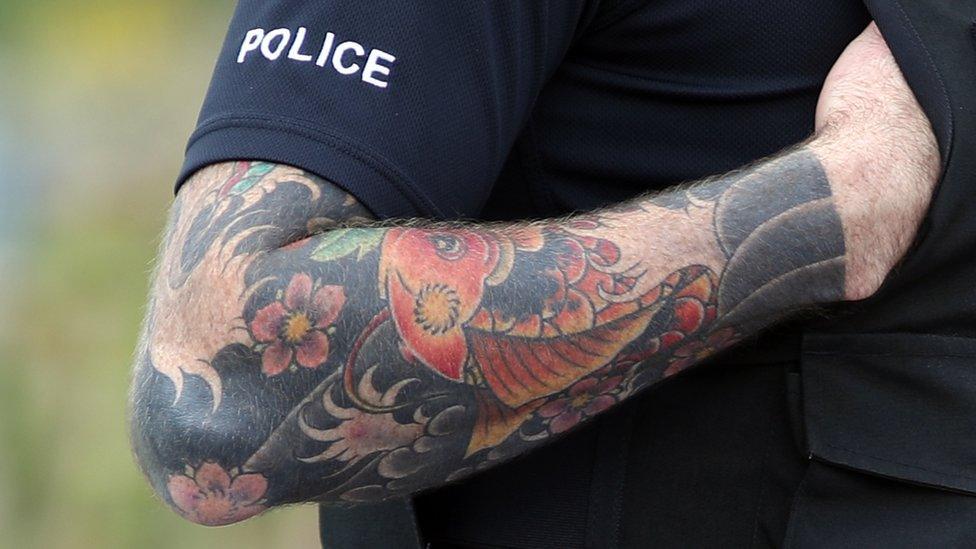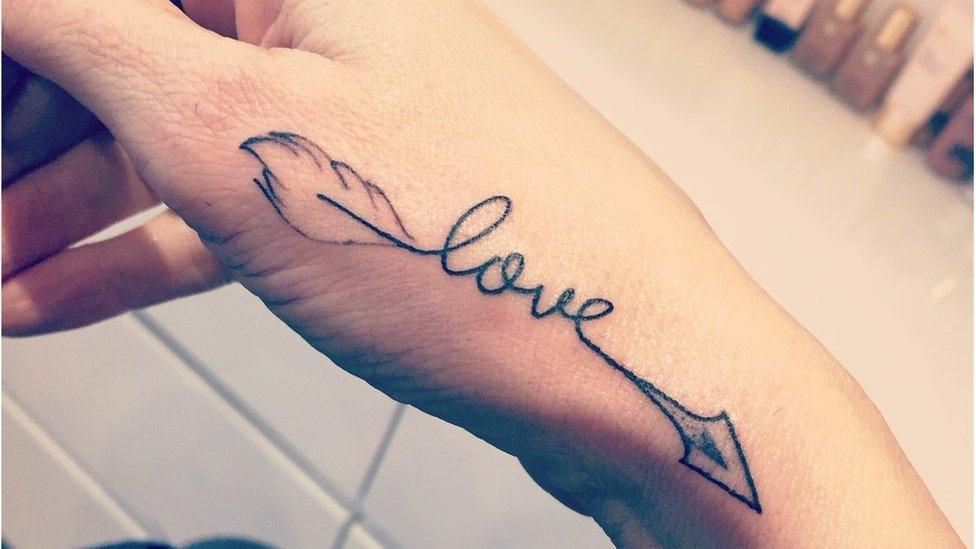West Yorkshire Police reverse tattoo cover-up decision
- Published

The policy on covering up arm tattoos was "bizarre and unfair," according to the Police Federation
A "bizarre and unfair" policy requiring police officers with tattoos to cover them up has been reversed, according to the Police Federation.
West Yorkshire Police's regulations, external had required officers with tattooed arms to cover them up, although a small tattoo on the neck or hands could be shown.
The force will now let "non-offensive" arm tattoos to be displayed on duty.
The West Yorkshire Police Federation had run an 18-month campaign to try to have the policy changed.
Its general secretary Guy King said the change brought the force "in line" with others across the country.
He said: "The decision to change the policy comes after continued pressure from the federation over the last 18 months and we have long argued that the policy was bizarre and unfair, as small and non-prominent tattoos on the hands and neck were allowed to be shown but all others must be covered.
"It brings us in line with what is widely accepted within society at large and reflects the modern, diverse workforce we have."
A survey of more than 1,000 officers in 2018 found the majority were not opposed to colleagues tattoos being visible and 80% of respondents said the policy of covering up did not reflect the communities they served, Mr King said.
Last year, London's Metropolitan Police partially relaxed a ban on recruiting candidates with body art, saying tattoos would now be considered on a "case-by-case basis".
Met Commissioner Cressida Dick said the policy had been deterring new applicants - 10% of whom were rejected in 2017 because they had tattoos.

Follow BBC Yorkshire on Facebook, external, Twitter, external and Instagram, external. Send your story ideas to yorkslincs.news@bbc.co.uk, external.
- Published16 January 2019

- Published16 June 2019
